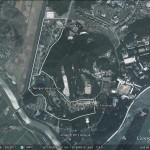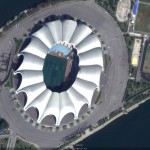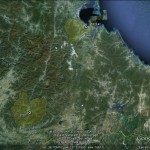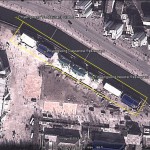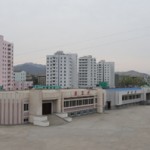Arirang News has posted a video on the changes in consumer culture in the DPRK. It highlights just how much things have changed since the days of Kim Il-sung:
Archive for the ‘Civil society’ Category
Consumer culture changing DPRK
Wednesday, May 30th, 2012Visa-free Rason tourism for Chinese citizens
Tuesday, May 29th, 2012According to Choson Exchange:
Chinese tourists will have visa free access to the border regions linking Yanbian Autonomous Region, Rason Special Economic Zone and Russia, according to a report originating with Jilin Radio that surfaced in South Korean media today.
The report doesn’t give an date for implementation, but does state that the previous tourism agreement governing the border region (signed in 2010) will be streamlined. It still takes 10 days for a Chinese traveler to get permission to visit Rason. This process will drop to 2-3 days.
If accurate, this could go a long way towards boosting tourism in the SEZ. After all, a Beijinger or Shanghaiian might well be more willing to spend the money to visit the region if they can get two countries in the same trip. At the risk of overgeneralizing, Asian tourists seem eager maximize passport stamps above all else on international tours. This desire could be effectively exploited if Rason and Russia’s Primorsky Krai province coordinate their marketing.
Also, now that the road to Rason is paved, the ease with which Chinese gamblers can reach the Emperor Casino and Hotel greatly increases and arguably makes the destination seem more normal and therefore attractive. One wonders if the casino’s fleet of crimson humvees, once needed to whisk high-rollers along the laborious dirt road from, will now be replaced by Mercedes or Lexuses. (Lexi?)
Last year, the SEZ experimented with self-drive tours for Chinese citizens, though there has yet to be any follow-up on it.
For westerner tourists thinking of visiting Rason, we recommend Krahun, a company that has had a presence in Rason for over a decade and know the region exceptionally well.
Read the full story here:
Visa Free Rason Tourism for Chinese Citizens
Choson Exchange
Andray Abrahamian
2012-5-29
North Korean academic publications abroad
Friday, May 25th, 2012The Hanguk Ilbo reported on a Korean VOA story about North Korean publications abroad. A friend was kind enough to translate this article for me:
Voice of America (VOA) reported on the 25th that Thompson Reuters, a rating agency of scientific findings, announced NK has published 187 papers in reputable science journals between 2000 and 2012.
Reviewing the publication history, from 2000 to 2006 NK scientists annually published articles abroad totaling in the single digits–except in 2004. However, Reuters reports that since 2007 that the annual average has increased to 28 publications per year.
Of the publications in these foreign journals, 77.5% (or 145) of the publications were joint-research with foreign researchers. Of these joint-research projects, 61.4% (or 89) publications were with the Chinese. This is followed by Germans (27 publications), Australians (9 publications), South Korean (8 publications), American (7 publications) and Japan (5 publications).
The reporting agency claims that the reason why so few NK research was published in international academic journals is that NK lack the appropriate English (communication or writing; it’s not specific) skills.
Thompson Reuters is currently aggregating publications listed with internationally renown and respected academic journals.
In contrast, in 2010 alone, SK scientists have published approximately 40,000 papers in academic journals and American scientists have published approximately 33,000 papers.
The original Korean story can be found here:
2000년 이후 12년간 北국제논문 187건뿐
Hanguk Ilbo
2012-5-25
Kim Jong-un’s guidance trip to the Mangyongdae Funfair
Thursday, May 10th, 2012Wow. In the (approximately) seven years of KCNA reports I have perused on Kim Jong-il’s and Kim jong-un’s guidance trips I have never heard of either of the leaders adopting the tone Kim Jong-un deployed on this trip.
Pictured above (Google Earth): The Mangyongdae Funfair (Not to be confused with the Kaeson funfair or the Taesongsan Funfair). I have actually visited this funfair twice. See here and here.
According to Yonhap:
North Korean leader Kim Jong-un lashed out at officials of an amusement park for neglecting to take proper care of the facility’s grounds and rides, the North’s state media said Wednesday in an apparent move to highlight the leader’s concern for his people.
North Korean media, including the official Korean Central News Agency (KCNA), said Kim inspected the Mangyongdae Funfair in Pyongyang and scolded officials there after discovering flaws throughout the park.
It is the first time the North Korean media have reported a public censure by the new leader. Reports on similar activities by Kim’s father and late leader Kim Jong-il were also rare.
According to the news reports, Kim Jong-un noticed a damaged path in front of a Viking ride and called it “pathetic,” while also pointing out flaws in the park’s gardens and a roller coaster, the condition of paint on rides and the safety of a water park.
“Seeing the weeds grown in between pavement blocks in the compound of the funfair, he, with an irritated look, plucked them up one by one,” the KCNA said in an English-language dispatch monitored in Seoul. “He said in an excited tone that he has never thought that the funfair is under such a bad state and a proverb that the darkest place is under the candlestick fits the funfair.”
The KCNA reported Kim’s rebukes in detail, using strong expressions of disapproval.
“He scolded officials, saying why such things do not come in their sight and querying could the officials of the funfair work like this, had they had the attitude befitting master, affection for their work sites and conscience to serve the people,” it said. “Plucking up weeds can be done easily with hands as it is different from updating facilities, he added.”
Kim also instructed officials to draw a lesson from touring the site and take it as a warning of the need for a “proper spirit of serving the people,” the KCNA said.
Choe Ryong-hae, director of the General Political Bureau of the (North) Korean People’s Army (KPA), accompanied Kim on the trip and received the task of “sprucing up the funfair as required by the new century by dispatching strong construction forces of the KPA.”
Analysts in Seoul viewed the North Korean media’s unusual approach as an attempt by the leadership to transform Kim’s image. The new leader, believed to be in his late 20s, has thus far been portrayed as a friendly and gentle character with a striking resemblance to his grandfather and founding leader Kim Il-sung. Now, the aim is apparently to depict him as a leader who deals sternly with his aides in order to serve the public, the analysts said.
“It’s an attempt by Kim Jong-un to tighten discipline among ranking officials,” said Jang Yong-seok, a senior researcher at the Institute for Peace and Unification Studies at Seoul National University. “The fact that it was broadcast shows that the aim is to instill an awareness among ranking officials across North Korea that Kim Jong-un is a benevolent leader but also strict when it comes to principles.”
Jang also said the report could serve other purposes, such as proving Kim’s ability to look after detailed aspects of policy, or blaming government officials for the people’s frustrations.
Below I have posted the original KCNA report of the event:
DPRK to join Paralympics for first time
Wednesday, May 9th, 2012According to Yonhap:
North Korea will enter the Paralympic Games in London this year, a pro-North newspaper said Wednesday, marking the first time the communist country will compete in the games for the physically disabled.
North Korean Paralympic athletes left for Beijing last Thursday and will hold joint training sessions with their Chinese counterparts until early June, according to the Chosun Sinbo, a Tokyo-based newspaper seen as a mouthpiece of the Pyongyang regime.
The athletes will stay at a sports village in the Chinese capital and conduct training and competitions in table tennis, swimming and athletics, among other sports, it said.
The London Paralympic Games are set for Aug. 29 to Sept. 9.
The paper reported in December that North Korea was preparing to join the International Paralympic Committee (IPC), the competition’s global governing body, in order to take part in this year’s event.
That attempt ended in failure, but a South Korean official at the Korea Sports Association for the Disabled said North Korea won provisional membership of the IPC in March.
“Provisional member countries are also given the right to take part in the Paralympics,” the official said on customary condition of anonymity. “This is the first time North Korea has won the right to participate.”
A country’s past participation in international competitions is a key indicator of its qualifications for joining the Paralympics, according to the Chosun Sinbo.
“(North Korean) athletes will gain that qualification through this trip to China,” it said.
North Korea is a frequent participant in both Summer and Winter Olympic Games. The country has so far competed in eight Summer Games and won 10 gold and 41 total medals.
It will also compete at the upcoming London Olympics set for July 27 to Aug. 12.
Read the full story here:
N. Korea to join Paralympics for first time
Y
2012-5-9
Potent portraits in North Korea
Thursday, May 3rd, 2012Pictured above (Google Earth) : Ichon, alleged home of the patriotic North Korean mentioned in the story.
Andrei Lankov wites in the Asia Times:
In August 2007, North Korea suffered severe flooding. Kang Hyong-kwon, a factory worker from the city of Ich’on, was trying to make his way to safety through a dangerous stream. While leaving his flooded house, he took the two most precious things in his life – his five-year-old daughter and portraits of Leaders Generalissimo Kim Il-sung and Marshal Kim Jong-il (or so was reported in the North Korean media a few days later).
Read the rest below:
Army Founding Day a source of stress
Wednesday, April 25th, 2012According tot he Daily NK:
The North Korean authorities have called on the people to provide supplies for care packages to be given to military units on People’s Army Foundation Day, which falls today. It is not a new burden, but is relatively larger this year, according to a source.
The source from Chongjin in North Hamkyung Province told the Daily NK yesterday, “The people feel seriously burdened by the project going on nationwide to gather support supplies ahead of the military holiday. Each household is required to offer up towels, soap, toothpaste, socks and underwear.”
“Usually they collect around 1,000 won from each family, but this year they told us to give 10,000 won,” the source went on. “Since even providing food for the family is not easy, many people are playing a waiting game on this.”
The source explained that societal organizations (the Union of Democratic Women, General Federation of Korean Trade Unions etc) have also been gathering care packages for delivery to local military units by ‘People’s Delegations’ consisting of municipal and county Party cadres.
“Middle school classes are also suspended while students prepare and perform ‘People’s Army Comfort Concerts’ at art centers and in military camps, and the Union of Democratic Women are preparing art performances,” she added.
Problematically, the various April holidays also mean that markets are closed more often than normal, and this is driving down household incomes.
For the Day of the Sun, the markets were closed from the 14th through the 17th. The markets are also closed today for Army Foundation Day today. Moreover, they were also closed on the day Kim Jong Eun was elevated to 1st Secretary and the day of the mass rally organized to denounce the Lee Myung Bak administration, to name but two.
As such, the source concluded, “April is a hectic month. Aside from the fact that the people are exhausted because of the pressure from the authorities their income has dropped by around half so many will likely end up in debt.”
Read the full story here:
Army Founding Day a Source of Stress
Daily NK
Choi Song Min
2012-04-25
Phyongsong restaurant street opens
Wednesday, April 25th, 2012Phyongsong restaurant street: (L) via Google Earth (R) via Rodong Sinmun
According to KCNA:
New Street of Restaurants Built in S. Phyongan Province
Pyongyang, April 24 (KCNA) — A street of restaurants was newly built in the Jungdok area in Phyongsong City, South Phyongan Province of the DPRK.
There include houses serving casserole, noodle, tangogi soup and entrails soup. A meat shop was also built there, making it possible to improve the people’s diet.
The street is decorated with peculiar display of colorful light.
The restaurant street was featured on the evening news on April 16.
There are at least two other “Restaurant Streets” in the DPRK: Changwang Street in Pyongyang and Hoeryong, North Hamgyong Province.

